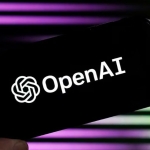
Artificial intelligence (AI) is a technology that enables machines to perform tasks that normally require human intelligence, such as understanding language, recognizing images, and making decisions. AI has been widely used and applied in various fields and sectors, such as education, health, finance, and security, to improve efficiency, accuracy, and innovation.
However, AI also poses some challenges and risks, such as ethical, social, and legal issues, especially related to bias and discrimination. AI bias refers to the situation where an AI system produces unfair or inaccurate outcomes or impacts for certain groups or individuals, based on their characteristics, such as race, gender, age, or religion. AI bias can be caused by various factors, such as the data, the algorithms, the design, or the use of the AI system.
Singapore is a small but advanced country in Southeast Asia, with a population of about 5.7 million, and a GDP of about $364 billion. Singapore is also a diverse and multicultural country, with four official languages, and four major ethnic groups: Chinese, Malay, Indian, and Others. Singapore has been investing and developing in AI, as part of its Smart Nation vision and strategy, to enhance its competitiveness and sustainability.
Motivation
Singapore has been building its own AI model, named SEA-LION, to address and prevent AI bias in the region, and to represent and serve the Southeast Asian languages and cultures. Some of the reasons and motivations for building SEA-LION are:
One of the main causes of AI bias is the lack of data or the imbalance of data for certain languages or groups, which leads to poor or skewed performance or representation of the AI system.
For example, most of the large language models (LLMs), such as GPT-4 and Llama 2, are trained and based on English data, which may not capture or reflect the linguistic and cultural diversity and complexity of Southeast Asia, where there are more than 1,200 languages spoken. SEA-LION aims to address this gap by training and using data from 11 Southeast Asian languages, such as Bahasa Indonesia, Thai, and Vietnamese, to produce and provide more accurate and relevant content and services for the region.
Another cause of AI bias is the lack of awareness or respect for the cultural norms and values of different languages or groups, which leads to inappropriate or offensive outcomes or impacts of the AI system.
Keep Reading
For example, some of the LLMs may generate or suggest content or responses that are insensitive or disrespectful to the religious or ethnic beliefs or practices of Southeast Asians, such as using profanity, making jokes, or expressing opinions. SEA-LION aims to prevent this problem by incorporating and adhering to the cultural norms and values of Southeast Asia, such as politeness, harmony, and diversity, to produce and provide more suitable and respectful content and services for the region.
A further motivation for building SEA-LION is to enhance and assert the regional identity and autonomy of Southeast Asia, which may be overshadowed or influenced by the dominant or competing powers or interests of other actors, such as the US, China, or India, in the field of AI. SEA-LION aims to empower and enable Southeast Asia to have its own voice and vision in AI, and to contribute and collaborate with other regions and countries in AI, based on its own strengths and needs, and on the principles of mutual recognition and respect.
Implications
Singapore’s building of SEA-LION could have various implications and consequences, not only for the AI industry and the public interest in Singapore and Southeast Asia, but also for the regional and global dynamics and relations in AI. Some of the possible implications are:
Positive implications:
- Singapore’s building of SEA-LION could improve the quality and the accessibility of AI for the Southeast Asian audience and market, who may have limited or unsatisfactory options or experiences with the existing or mainstream AI systems, especially in terms of language and culture. SEA-LION could also improve the inclusion and the participation of Southeast Asia in the global AI community and economy, by providing and showcasing its unique and valuable data and insights, and by creating and offering its innovative and competitive products and solutions.
- Singapore’s building of SEA-LION could also promote the awareness and the responsibility of AI for the Southeast Asian society and environment, by addressing and preventing the potential or actual harms or risks of AI bias and discrimination, and by ensuring and enhancing the fairness, accountability, and transparency of AI. SEA-LION could also promote the cooperation and the integration of Southeast Asia in the regional AI development and governance, by fostering and facilitating the sharing and the learning of best practices and standards, and by supporting and strengthening the common goals and interests of the region.
Negative implications:
- Singapore’s building of SEA-LION could also pose some challenges and difficulties for the Southeast Asian AI industry and public interest, such as the availability and the quality of the data, the scalability and the sustainability of the model, and the regulation and the evaluation of the outcomes and impacts of the AI system. SEA-LION could also pose some trade-offs and costs, such as the resources and the time required to build and maintain the model, and the potential and opportunity losses from not using or adopting the existing or mainstream AI systems.
- Singapore’s building of SEA-LION could also create and increase the tension and the competition of Southeast Asia with other regions and countries in AI, especially those that have more advanced or aggressive AI capabilities or ambitions, such as the US, China, or India, who may perceive or challenge SEA-LION as a threat or a rival, or who may try to influence or interfere with SEA-LION’s development or deployment. SEA-LION could also create and increase the diversity and the complexity of the regional and global AI landscape and order, by adding and introducing more actors and factors, and by raising and complicating more issues and questions, in the field of AI.























